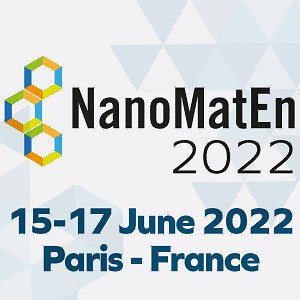


| Location |
|
|---|---|
| Start Date | Jun 15, 2022 |
| End Date | Jun 17, 2022 |
| Event Type | Conference |
| Subject Area | Oil - Gas - Petrochemical New energy - Renewable energy Nanomaterials Nanoscience - Nanotechnology Environment |
Nanoscience and nanotechnology are interdisciplinary fields that bring together physicists, chemists, materials scientists, and engineers to meet the potential future challenges that humankind will face, including the search for renewable energies for sustainable development and new technologies for carbon capture and environmental protection. Among the current subjects in nanoscience and nanotechnology, nanomaterials are developing fast and explosively and attracting a huge amount of attention. Nanomaterials and their manufacturing technologies have been seamlessly integrated into many applications. They continue to show promising potential and have found application in solar cells, fuel cells, secondary batteries, supercapacitors, air and water purification, and removal of domestic and outdoor air pollutants. Clean energy and environmental applications often demand the development of novel nanomaterials that can provide shortest reaction pathways for the enhancement of reaction kinetics. Understanding the physicochemical, structural, microstructural, and surface properties of nanomaterials is vital for achieving the required efficiency, cycle life, and sustainability in various technological applications.
Topics:
Nanomaterials for solar cells and Photovoltaics
- Nanomaterials for clean energy production and delivery
- Nanotechnology for Solar Energy Collection and Conversion
- Advanced Silicon solar cells
- Inorganic Thin Film cells & modules for cost efficient technologies
- Nanowire based cells and new tandem architectures
- Light management and new cell designs and concepts
- Nanomaterials for Dye-Sensitized Solar Cells
- Alternative solar related technologies
- Technology versus market needs
Nanomaterials for Hydrogen, Fuel Cells and Thermal Energy
- Hydrogen storage in single and multicomponent systems
- Reaction mechanisms/pathways in complex systems
- Hydrogen storage in nanoconfined systems
- Scaled-up systems
- Hydrides in energy storage applications
- Technological development/challenges in solid-state hydrogen storage
Nanomaterials for energy conversion and storage
- Recent development in nanomaterials and nanotechnology for energy conversion and storage
- Synthesis and characterization of advanced nanomaterials and nanostructures
- High-performance supercapacitors, solar cells, rechargeable batteries, and fuel cells
- Theoretical understanding of renewable energy conversion and storage process
- Energy Storage, Batteries, Capacitors and Novel Generation
- Nanocatalysts and nanoparticles for hydrogen storage
- Nanomaterials for thermal or thermochemical (heat) storage
- Alloys, design and processing in Renewable Energy Technologies
Graphene Nanotechnology for Energy Production and Storage
- Preparation of graphene using different methods
- Graphene composites
- Application of graphene supercapacitors
- Application of graphene solar cells
- Application of graphene batteries
- Electrolytes, electrodes, and separators that are related to graphene energy devices
- Performance of graphene based electrodes
- Electrochemistry of graphene related electrodes
Nanotechnology for Fossil Fuels and CO2
Nanoscale Processes and Techniques
- Nanotechnology for Improved/Enhanced Oil Recovery
- Flow Assurance Nanotechnology
- Drilling and Completion Products and Processes
- System Safety and Asset Integrity
NanoNuclear Materials
- Nuclear medicine
- Nuclear physics
- Advanced materials
- Nuclear Energy
Nanomaterials for environment protection and remediation
- Nanotechnology for water, air and soil protection
- Nanotechnology for water desalination
- Nanomaterials and nanostructures for gas sorption, storage, and sensing
- Nanomaterials and photocatalytic nanoparticles for water/air detoxification
